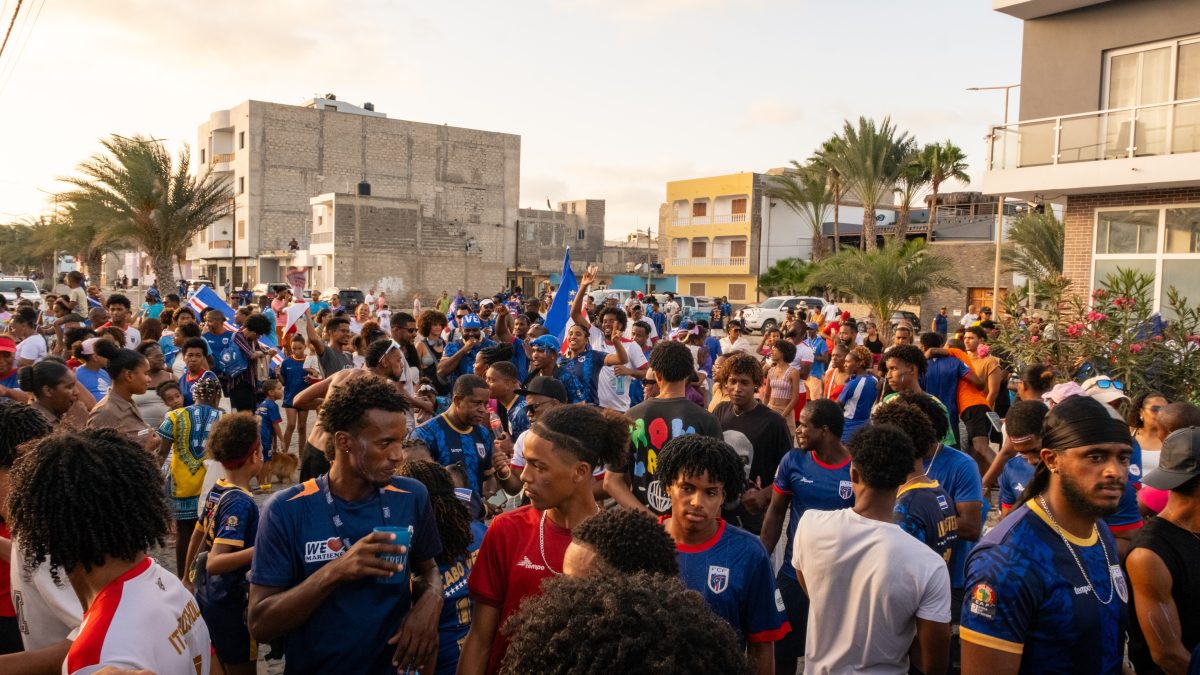
There is a version of this story where Roberto “Pico” Lopes never sees the note. A stranger writes to him in Portuguese on a professional networking site. He scrolls past. That alternate timeline never gets Cape Verde to a World Cup.
Cape Verde, a small Atlantic archipelago stitched together by a vast diaspora, changed its football future by saying yes to the outside world, and by treating identity as a project.
On Monday in Praia, the Blue Sharks beat Eswatini 3–0 to finish atop Group D and book the country’s first trip to a men’s World Cup. They did it with second‑half goals from Dailon Livramento, Willy Semedo and Stopira, and with a broader plan years in the making. The win makes Cape Verde only the second‑smallest nation to reach the tournament after Iceland in 2018.
Lopes, a Shamrock Rovers center back born in Dublin to an Irish mother and a Cape Verdean father, is the most internet‑era detail of the rise. The initial approach from then‑coach Rui Águas arrived on LinkedIn in 2018. He skipped it. Águas tried again in English. “Thankfully, he wrote back in English. That is what set me off on this incredible adventure,” Lopes told Sky Sports. “I check LinkedIn every day.”
He accepted the invitation, debuted in 2019, and became part of a national program built on diaspora reach and local roots. That is key to understanding why Cape Verde is not a one‑off Cinderella, but the product of intentional choices.
The 11th island, at last
The Cape Verdean diaspora outnumbers the population at home, and the federation has learned to treat that reality as an advantage rather than an accident. In the last two international windows, 14 of 25 call‑ups were born abroad.
Coach Pedro “Bubista” Brito then did something simple and powerful. “It’s the official language of the national team,” he said of Creole. “Some players used to speak only English, but now they’ve learned Creole. Sometimes the guys try to speak other languages among themselves, but I don’t allow it, to keep our Cape Verdean identity intact.”
The cohesion showed in qualifying, where Cape Verde finished four points ahead of Cameroon after that 3–0 against Eswatini and a series of results that steadily pushed the Indomitable Lions into the playoff lane. It was organization more than spectacle, and it was enough.
Back home, the celebrations told their own story. Thousands gathered at Estádio da Várzea, the old national stadium, to mark the moment. José Maria Silva, the national director of state protocol, called qualification “the third defining moment of our nation,” after independence in 1975 and the first multiparty elections in 1991. That is the scale of feeling around a team that wears the map on its sleeves and hears the languages of two continents in its dressing room.
The federation has managed it with scarce resources. An away trip to Libya ran just under $400,000. Now comes the payoff. FIFA’s group‑stage money, about $10.5 million, will arrive in time to formalize scouting across the diaspora and to improve the pipeline at home, where semi‑pro salaries can be as low as €200–€300 a month, roughly $210 to $315. Spend it well, and this becomes a base, not a peak.
The online chatter distilled it to a meme: a reminder to check your LinkedIn DMs. Yes, even footballers, especially those seeking new contracts.
A cold message in 2018 led to a center back who represents a global family, and that family just earned a seat at the biggest table in the sport. Cape Verde’s quarterfinal run at AFCON 23 hinted at the ceiling. Qualification made the ceiling feel more like a floor.
Next is the journey to North America. Expect Blue Sharks flags in New England, where Cape Verdean communities in Massachusetts and Rhode Island have been part of the story for generations.
Expect a patient, compact team that chooses its moments. And expect conversations around the staging of a 48‑team World Cup 2026 that will test travel, scheduling and heat plans. If the last few years taught anything, it is that Cape Verde adapts quickly. The team found talent across oceans, found a common tongue, and found a way.